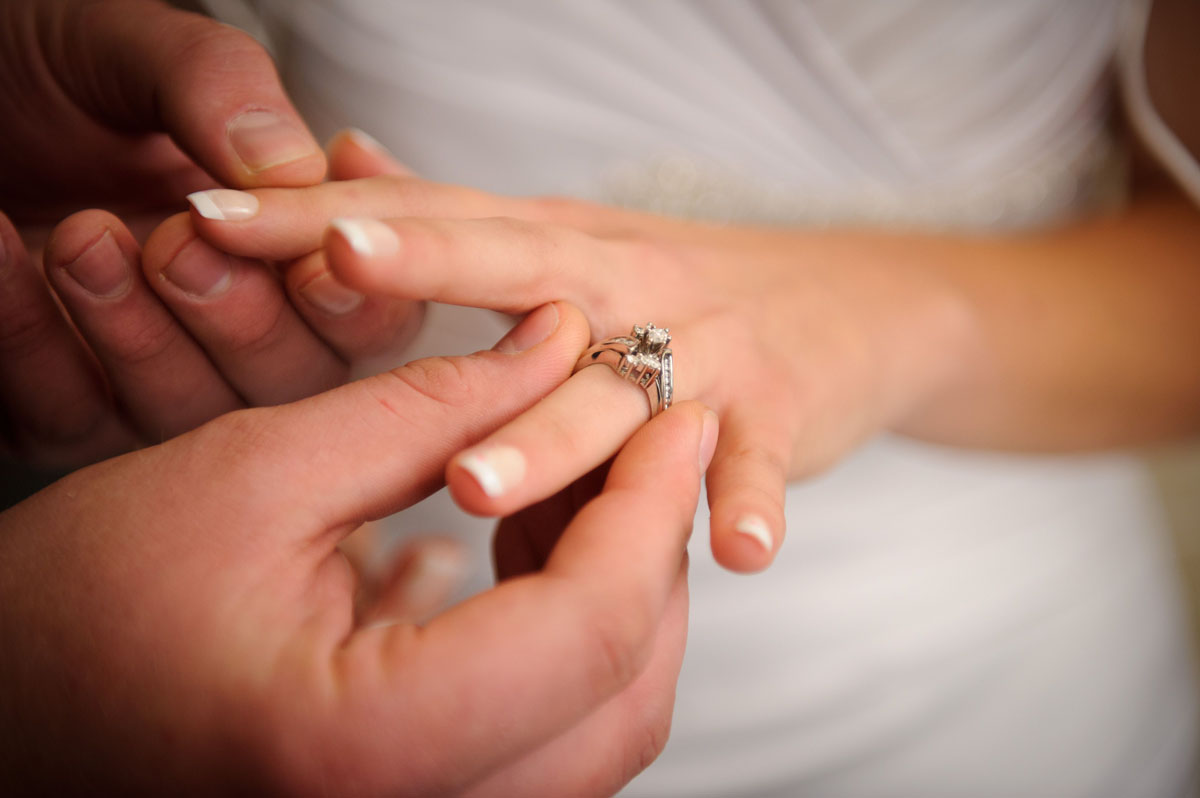Baking on a Budget: Three Easy Desserts Without Breaking the Bank.

Style insight: 4 easy ways to update your wardrobe for $25 or less
A broken engagement can be a very painful and confusing experience. And in the fog of hurt feelings that accompany such a stressful moment, one question often arises: Should the engagement ring be returned?
With an estimated 15 to 20 percent of engagements broken off annually, it’s a question that’s more common than you think.
The reason it comes up is that the laws surrounding broken engagements and engagement rings are not always clear, according to FindLaw.com, the nation’s leading website for free legal information. Laws regarding the return of engagement rings vary by state. Some states incorporate a fault-based approach, while other states do not. Some state laws look at an engagement ring as a gift, while others consider it a conditional gift dependent on a future event (a wedding) taking place.
Giving back an engagement ring is made even more complex by changing social and economic factors. More couples are living together before they get married, which often leads to the joint purchase of an engagement ring, as well as such assets as furniture and other household items. And because many engagement rings are purchased with a credit card or financed through the jewelry store, the giver could still be liable for paying off the purchase long after the engagement has been broken.
Engagement ring etiquette
According to The Knot, a wedding and relationships website, “If the bride calls off the wedding and her ring was a gift from the groom, it’s appropriate for her to return it. If the groom calls it off, the bride may still want to return the ring because she doesn’t want to be reminded of their failed engagement. If he was a real jerk though, we can’t argue against taking it to a pawnshop.”
“If the ring is a family heirloom (grandmother’s engagement ring),” continues The Knot.com, “it should be returned regardless of why the wedding was cancelled. If the couple bought it together, they need to decide what to do with it, as with any other joint purchase (perhaps they can take it to a pawnshop together and split the earnings).”
Determining if it’s a gift
So was the engagement ring a gift or not? What happens if an engagement ring is given on Valentine’s Day or Christmas?
Some states use a no-fault, conditional gift approach to settling disagreements about whether an engagement ring should be returned. Others such as Montana classify the ring as an unconditional gift and award it to the receiver in the case of broken engagements.
What makes an engagement ring a gift? According to FindLaw.com, the law requires three elements for it, and most other items for that matter, to be considered a gift. Those elements are:
- The giver’s intent to give the item as a gift.
- The giver’s actual giving of the gift to the receiver.
- The receiver’s acceptance of the gift.
On the other hand, a conditional gift is one in which the giver provides the gift to the receiver with the expectation that a future event or action will take place. So, if the giver gives you the ring as he or she is proposing, and the receiver says, “Yes, I will marry you,” a condition has been established.
Here’s the tricky part: Is it the engagement or marriage which is the condition? Courts have generally ruled that in the event of a broken engagement, marriage – not the engagement – is the condition that must be met.
Fault-based approach
Some courts treat the entire engagement process like a contract. Similar to a broken contract, a broken engagement means each party was unable to fulfill elements of the agreement, and each should be restored to their previous position. This would mean that the giver would be awarded the engagement ring in a broken engagement.
No-fault approach
Increasingly, more states are leaning toward a no-fault approach to broken engagements. In 1999, the Pennsylvania Supreme Court ruled the giver should always get the engagement ring back. Iowa, Kansas, New Jersey, New Mexico, New York and Wisconsin also have adopted this approach.
In a nutshell, under the no-fault approach, the courts don’t care who’s at fault for the broken engagement. If the engagement is broken, the giver gets the ring back, regardless of who broke off the engagement, or why. This is similar to the no-fault approach in divorce law, in which the courts attempt to avoid the bitter, nasty and private reasons that often go hand-in-hand with a break-up – reasons such as “nothing in common,” “can’t stand my future in-laws,” “pets don’t get along,” “she’s on Facebook all the time,” or “he’s a slob.”
To learn more about family law topics such as marriage and divorce, visit FindLaw.com.
–(ARA)

